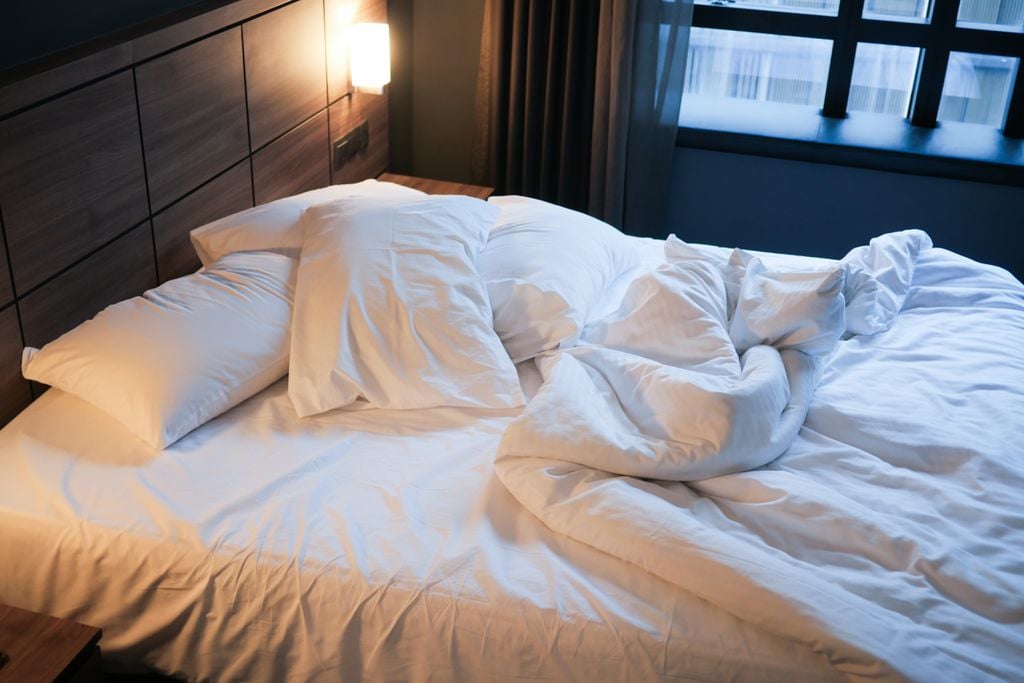For some reason, your house must be messy for at least a few days. Depending on the level of disorganization, you may have looked at all the dishes in the sink, the dirty clothes, and the grease on the bathroom tiles, not knowing where to start with a good cleaning. In addition to the issue of hygiene, disorganization can have psychological effects and create anxiety in the population, affecting health as a whole.
Indoors, “Clutter and clutter are more than just visual nuisances. They can have a profound impact on mental health, productivity and our choices,” explains Erica Penney, professor of clinical psychology at the University of Sydney, in an article. for the platform Conversation. In these cases, the resident may suffer from high levels of stress and anxiety, for example.
Why does a messy house cause anxiety?
“When we are surrounded by distractions [como a cama desarrumada, a pia suja, a geladeira com comida estragada e o xixi do pet no meio da sala]Our brains become a battleground for attention-seeking elements. “Everything is competing for our focus,” notes Professor Penny.

The problem is, more often than not, people aren’t natural multitaskers, even as they claim to be. In this way, having many pending tasks, such as cleaning, is the equivalent of leaving countless tabs open on the Internet or unfinished job applications. It’s hard to follow through before everything is in order, since the brain loves order and only does one task at a time.
“The system helps reduce competition for our attention and reduces mental overload. Although some people may be better than others at ignoring distractions, distracting environments can increase our cognitive abilities and memory,” the human brain specialist promotes.

In the context of those who work remotely, at home, a disorganized environment can lead to productivity issues, health issues, and even trouble sleeping.
The triggers for the disorder are more common in women
Published in the journal Personality and Social Psychology Bulletin (PSPB)A recent study found that when couples are analysed, the tendency is for domestic disturbances to predominantly affect women. They may have higher levels of cortisol, the stress hormone, when there is a lack of order in the home.
The main premise is that women have historically been responsible for maintaining and cleaning the home, and that this creates a burden on their minds even when they work outside the home and have their own professions in a context where they share domestic tasks with them. their partners. .
Interest in other mental health issues
In some cases, it can reflect clutter in the home and be a symptom of some disorder or mental health problem of the residents themselves. For example, disorganization can relate to:
However, the relationship between a major mental health problem and a home disorder can only be determined after a clinical investigation. In these cases, a search for a specialist, such as a psychiatrist, is necessary so that the person can identify the problem and gradually adjust it.
Perfectionism can be just as problematic as clutter
Another important point: it is impossible to avoid chaos inside the house at all levels, and it is a living mechanism where all tasks must be re-executed with some regularity.
If living in a messy home has an impact on mental health, perfectionism—a personality trait linked to obsessive-compulsive and compulsive behaviors—in cleanliness could be an equal or greater problem. After all, perfectionism also generates negative emotions, such as anxiety.
How to avoid the mental triggers of a messy home?
To help people who struggle with anxiety caused by disorganization at home, psychologist Penny shares three important strategies for preventing this type of anxiety:
- Have a cleaning day: The idea is to set aside one day a week to clean your home or even hire someone to do the heavy cleaning. To brighten up the moment, it helps to listen to music or podcasts;
- Do a little cleaning: During the week, the ideal is to maintain cleanliness through small activities, such as washing dishes after use or cleaning up the pet area every day, at a set time;
- Share the cleaning load: If a person lives with more people, it is important that everyone contributes to the organization and that their roles are defined.
The teacher points out that “Clutter does not determine whether you are a ‘good’ or a ‘bad’ person, and sometimes it can even stimulate your creativity. ‘Remember that you deserve success, good relationships, and happiness, whether you are cluttered or not.’” In your office, at home, or in your car.

It is worth noting that all points of influence of chaos in the house are taken into account only by the mind. However, living in environments with a high degree of clutter or even litter, in the case of batteries, can have other implications for health, as it promotes the spread of diseases, including the deadly bacteria leptospirosis – decomposing matter can attract and attract mice . Transfer of potentially deadly bacteria. Some types of mold also cause disease. So, if possible, clean more frequently.
source: Conversation that it because of

“Wannabe internet buff. Future teen idol. Hardcore zombie guru. Gamer. Avid creator. Entrepreneur. Bacon ninja.”

